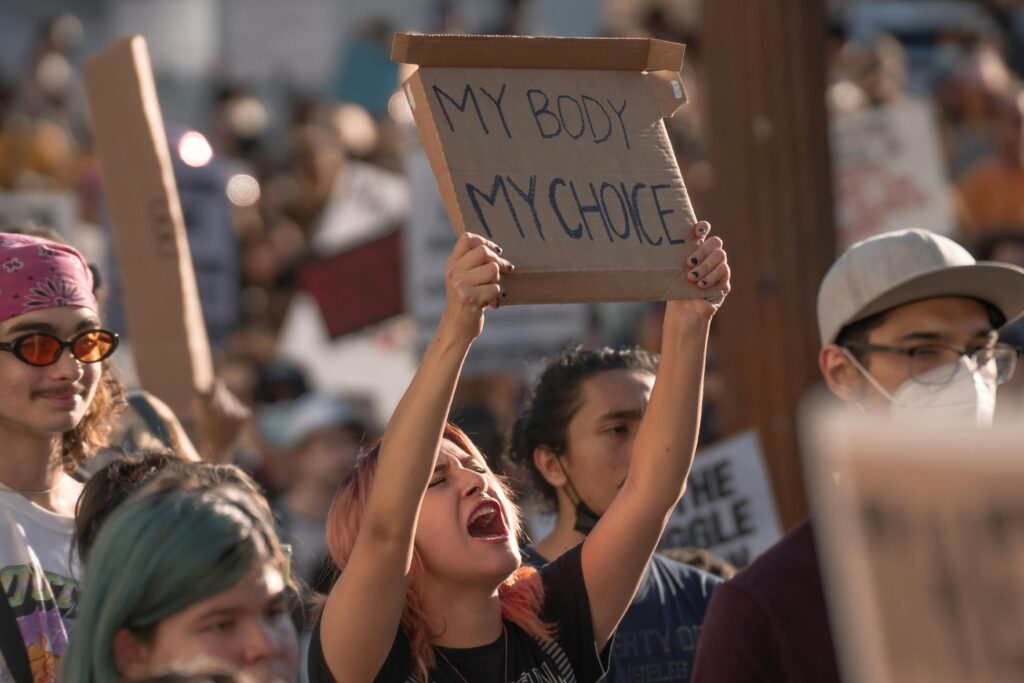
There is no doubt that abortion continues to become one of the most contentious issues of our time, with strong opinions on both sides of the debate. For me, the question of abortion cannot be separated from a genuine faith in God and a thorough understanding of Scripture. Central to the conversation is a fundamental premise: When does life begin? This is not merely a philosophical question but one of profound moral and spiritual significance.
When does Life Begin?
From my reading of the Bible for years, it is clear that life begins at conception. In Psalm 139:13-16, David speaks of being “knit together” in his mother’s womb, describing God’s intimate involvement in the creation of life from its earliest stages. God’s design of human beings is not random but purposeful, and this crafting begins at conception. Jeremiah 1:5 reinforces this understanding, where God declares, “Before I formed you in the womb I knew you, before you were born I set you apart.” These passages offer a glimpse into the sanctity of human life, not only at birth but from the very moment of conception.
The Biblical Principle of the Sanctity of Life
The Bible consistently teaches that human beings are made in the image of God (Genesis 1:27). This is a central doctrine that underpins the Christian view of the inherent dignity and worth of every human life. The image of God (Imago Dei) is not conferred upon a person after birth, nor does it depend on their viability or development stage. From conception, we bear the image of God, and this alone gives life value, regardless of whether it is inside or outside the womb.
Because life is sacred, abortion is not simply a “medical decision” or a matter of personal autonomy. It is an attempt for man to “play God” by deciding who lives and dies, encroaching on the divine prerogative of the Creator. Even in situations that result in pregnancy that are not ideal, such as cases of rape, incest, or where the mother’s life is at risk, God values both lives. Abortion eliminates the opportunity for God’s providential hand to work in those lives, no matter how difficult the circumstances may be.
Some argue that Exodus 21:22–25, which outlines a penalty for causing a miscarriage, suggests the Bible places a lower value on the unborn. This interpretation, however, misreads the text. The passage speaks of a situation where a premature birth occurs as a result of a struggle, not a miscarriage. The key point is that harm to both the mother and the child is considered, and punishment is given according to the degree of harm inflicted. Far from devaluing the unborn, this passage affirms that both lives — the mother’s and the child’s — are to be protected under the law.
The Complexity of Personal Autonomy and Choice
Some Christians advocate for a woman’s right to choose, pointing to the Bible’s emphasis on free will. Verses like Galatians 5:13 speak of the freedom believers have in Christ. However, freedom in Scripture is never without responsibility. Just because we have the freedom to make choices does not mean every choice is morally justified. In fact, this freedom comes with the admonition to “serve one another humbly in love.” If we accept the premise that life begins at conception, then the responsibility is to protect that life.
Dealing with Difficult Circumstances
The Bible does not shy away from the reality that life is full of difficult situations. It is one thing to advocate for life in ideal conditions, but it is another to confront real-world complexities like pregnancies resulting from violence or those that pose a risk to the mother’s life. The Bible is filled with stories of people enduring suffering and hardship, yet it calls believers to trust God’s sovereignty, even in situations we cannot fully understand.
In these instances, I believe the Christian response must be one of compassion and care, offering support to women in distress rather than condemnation. At the same time, we must uphold the belief that two lives are at stake and that the child in the womb also deserves protection.
Call for Compassionate Conviction
Overall, Whether the question is Life or Choice, Sanctity or Autonomy, God’s Plan or Man’s Control, Protecting Life or Ending It, Creator or Decider or however else we coin it to make for a neck and neck debate; I believe that the Bible provides a clear and consistent message regarding the sanctity of life, and that there is no doubt that life begins at conception. As a result, being Christians, we are called to uphold this truth, even when it challenges the norms of modern society. The complexity of this issue cannot be overstated, but my deep conviction is that we must be unwavering in our defence of the unborn while also offering love, grace, and support to those facing difficult decisions.
My position is not one of judgment but one of deep commitment to the God who creates life, and to the belief that every life, no matter how small or vulnerable, is worth protecting. By grounding our response to abortion in biblical teaching, we can engage in this debate with both conviction and compassion.

0 Comments